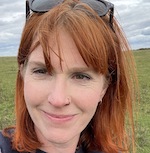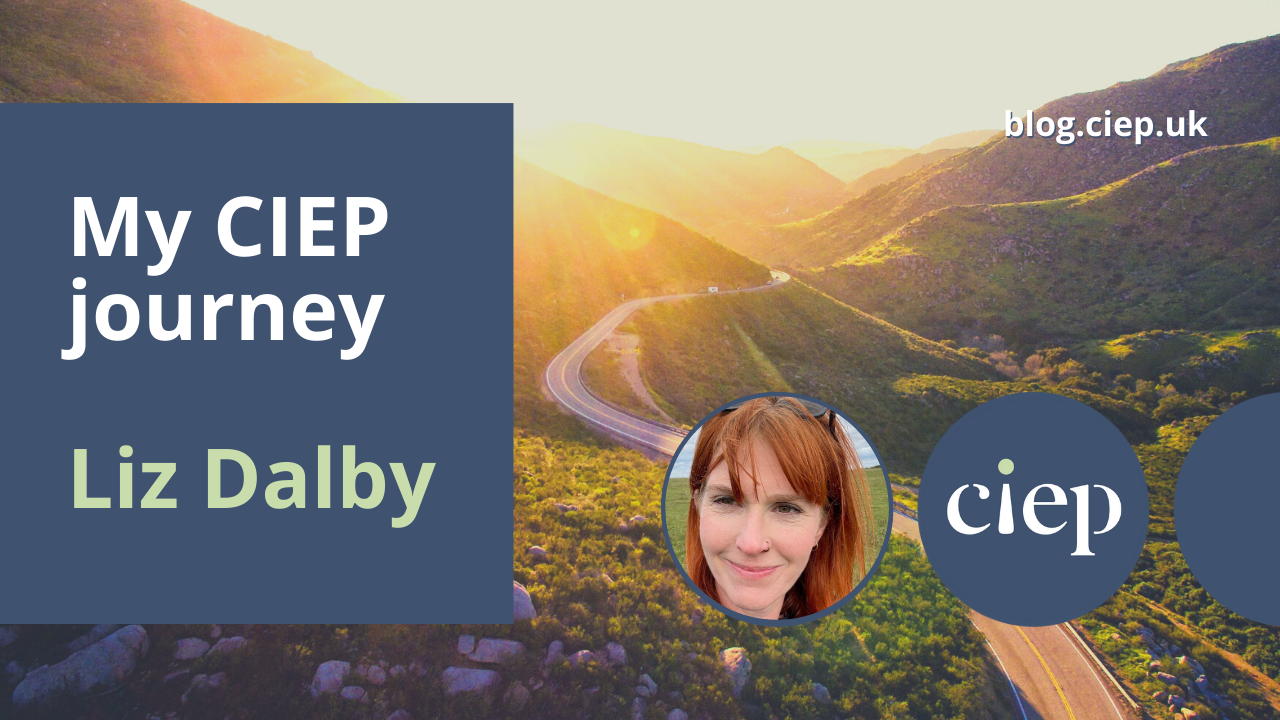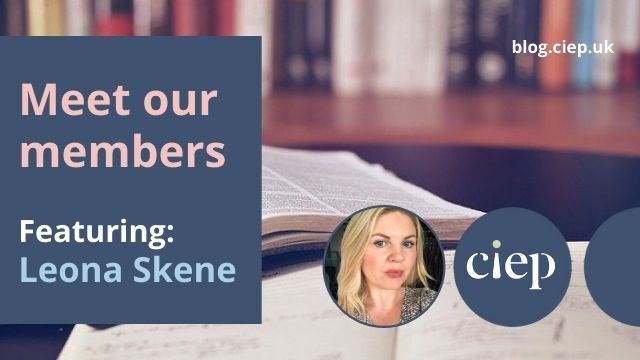As she moves away from full-time editing, and steps down from her role on the CIEP information team, Liz Dalby looks back at what the CIEP has meant to her. (And what it will continue to mean in the future!)
I’ve been an editor for 24 years, and a member of the CIEP/SfEP for about 13 years. For the entire duration of my membership I’ve been a freelance editor, but I’ve recently changed career, and returned to full-time employment as a bid writer – more on which later.
Awareness of the SfEP
Although I only joined the SfEP after I went freelance, I’d been aware of it from very early in my editing career. My manager in my first publishing job handed me a slim booklet one afternoon and asked me to find a suitable proofreader for a project we were working on. This was the original hard copy incarnation of the SfEP Directory, now of course the online CIEP Directory of Editorial Services.
It wasn’t until I was working for myself, many years later, that I properly understood the value of a community of like-minded editors. I was living in rural Somerset, with my only professional contacts based in London and feeling increasingly distant and tenuous. Although I was fortunate enough to have a steady flow of work from in-house colleagues, I was aware of the precariousness of my set-up, and joined the SfEP mainly to improve my job prospects.
Finding a place in the community
However, I was soon caught up in wanting to prove myself and make my mark. I had a decade of experience behind me, and was determined to become an Advanced Professional Member as soon as possible. In fact, that turned out to be harder than I’d expected, not to mention bruising for the ego, but I got there before too long. What next? I wondered. I had a vague notion of wanting to get stuck in somehow, and perhaps even give something back.
I wrote to Gerard Hill, then in charge of the SfEP’s mentoring programme, and offered my services as a mentor. Gerard was kind enough to take me on – though, looking back, I still had an awful lot to learn myself about proofreading, let alone helping anyone newer to the profession to learn the art. But I went on to work as a proofreading and copyediting mentor for the next ten years, mentoring about 50 people in that time. I learned so much by doing this – we don’t often see the work of other editors in detail, so that was a complete privilege. I hope I helped the various mentees I worked with, too.
SfEP Council work
It was working as a mentor that got me noticed by the Council, and I was headhunted for the first and only time (so far!) in my life, joining the Council in 2013. I stayed for just a couple of years in the end. It was a fantastic experience, and I thoroughly enjoyed my work as professional development director in particular. However, it was A LOT to deal with on top of running a business full-time and dealing with two small children.
What I took from my Council experience, aside from professional development that might not have been open to me working purely as a freelance editor, was a deeper connection with the freelance editorial community. In the years since leaving the Council, I’ve tried to maintain that, and later moved into blogging about editing, both for myself and for the SfEP and later the CIEP. In this way I’ve kept in touch with the community and shared (and sometimes overshared) my thoughts on this strange and wonderful profession of ours.
The CIEP’s information team
From 2019 until now I worked on the CIEP’s information team, being responsible first for the outward-facing newsletter, Editorial Excellence, and then the member newsletter, The Edit. With the other members of the team, under the guidance first of Margaret Hunter and most recently Abi Saffrey, I’ve also written and commissioned numerous resources such as fact sheets, focus papers and guides, on all aspects of editing and freelancing.
As I mentioned at the start of the article, though, I recently decided to change career. I’ve loved being an editor (and I do still do a little editing), but for a while I’ve also known that I wanted to give myself a new challenge and try something different. A quarter of a century is a really long time to do anything, and working freelance can take its toll after a while. I’m proud of the mental resilience that has enabled me to run a solo business for as long as I have, but I knew I was ready to return to a team and feel part of something larger.
Looking ahead
I now work for a foodservice company, writing executive summaries for new business proposals, and I absolutely love the work. It’s a breath of fresh air after so long in and around publishing. I am using all the skills I’ve amassed over the years, from writing to proofreading to project management, while also being immersed in a completely new industry. I still work mostly remotely, but I’m often in online meetings, and no two days are the same. I have absolutely no regrets about my midlife change of career.
But if I’m no longer strictly an editor, where does this leave my CIEP membership? I’ve seen friends and colleagues change career in the past, and sooner or later leave the CIEP, which is perfectly valid. However, I’m not ready to go just yet. For a start, I am still taking on a few selected editorial commissions, so it would seem responsible to keep up to date with best practice, and CIEP membership helps me do that. And I’m still working with words in my day job, so membership is still tangentially relevant. Finally, I’m simply not ready to leave the community of friends and colleagues to which I have given a lot but also got more back in return. I never could have lasted so long on my own without it.
The last few years have been momentous for the CIEP, as it’s changed its name, acquired chartered status, and many things about the way it is governed and run have evolved. And for now I really want to see where the institute goes next as a fully paid-up member, not an interested observer.
About Liz Dalby
 Liz Dalby has been a communications professional for 25 years – the first 24 as an editor, with a recent move into bid writing. As an editor, she worked on thousands of mostly non-fiction projects for a huge range of clients. She also worked on the CIEP information team from 2019 to 2023. She enjoys blogging about aspects of editing, writing and freelancing. When she’s not working with words, she likes yoga, running and painting.
Liz Dalby has been a communications professional for 25 years – the first 24 as an editor, with a recent move into bid writing. As an editor, she worked on thousands of mostly non-fiction projects for a huge range of clients. She also worked on the CIEP information team from 2019 to 2023. She enjoys blogging about aspects of editing, writing and freelancing. When she’s not working with words, she likes yoga, running and painting.
 About the CIEP
About the CIEP
The Chartered Institute of Editing and Proofreading (CIEP) is a non-profit body promoting excellence in English language editing. We set and demonstrate editorial standards, and we are a community, training hub and support network for editorial professionals – the people who work to make text accurate, clear and fit for purpose.
Find out more about:
Photo credits: header image by Matt Howard on Unsplash, woman at a laptop taking notes by Judit Peter on Pexels.
Posted by Eleanor Smith, blog assistant.
The views expressed here do not necessarily reflect those of the CIEP.





